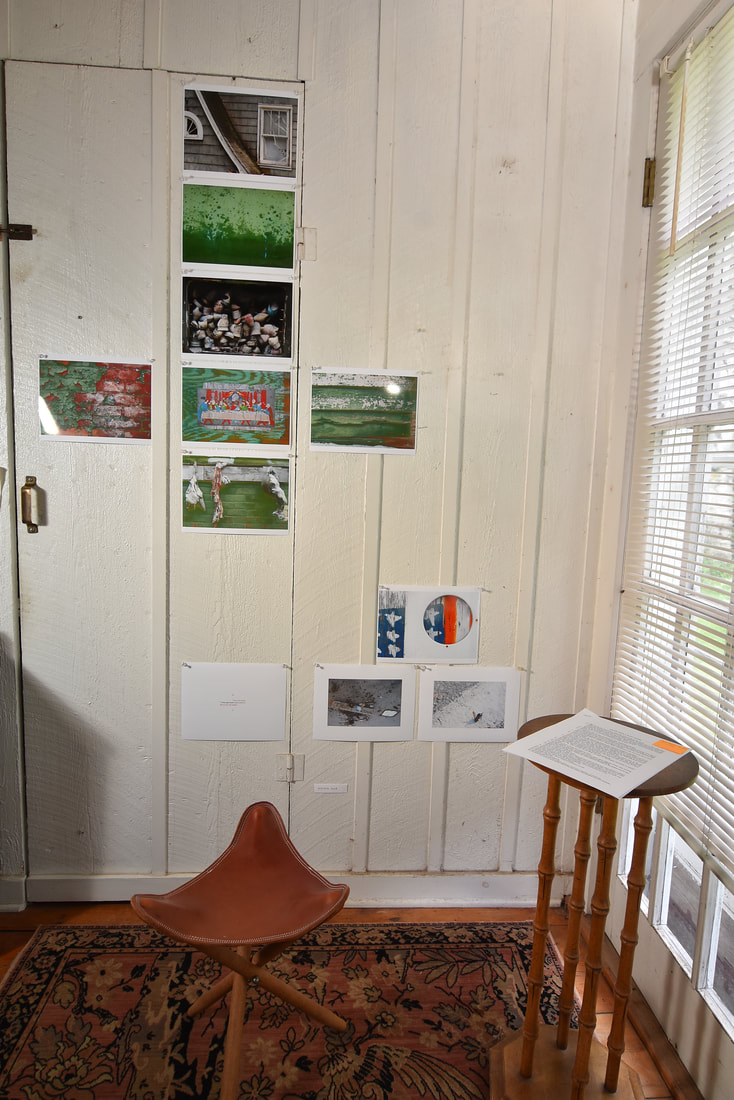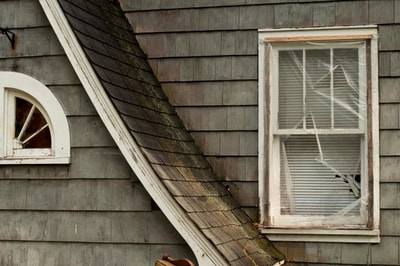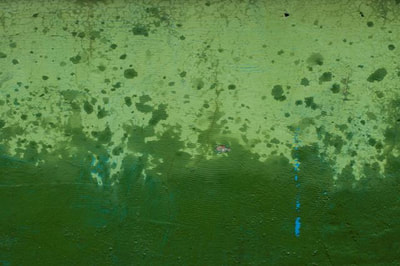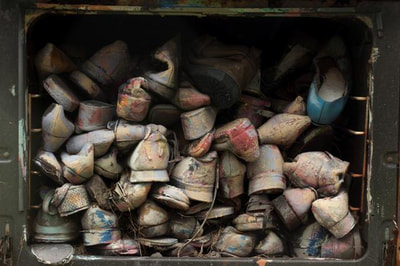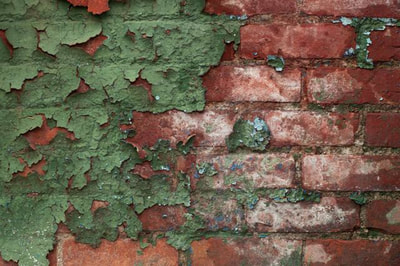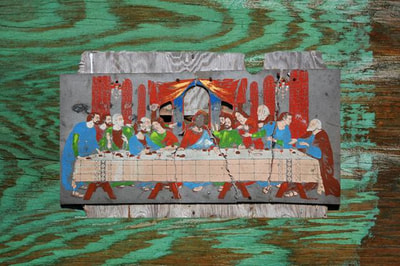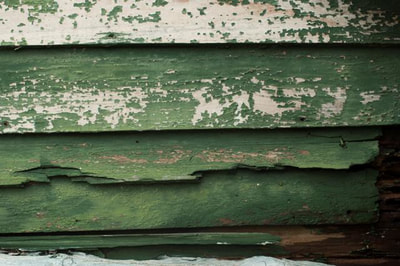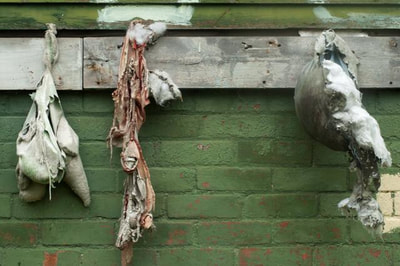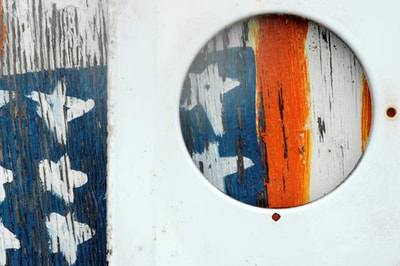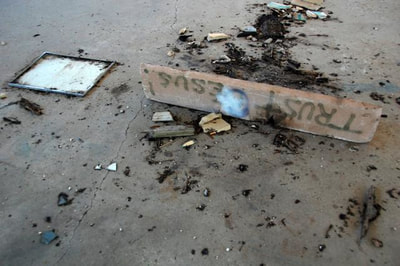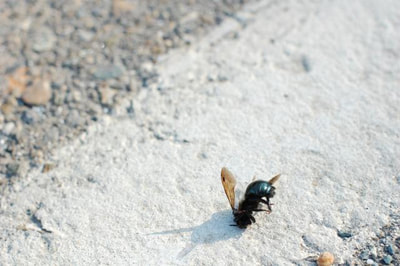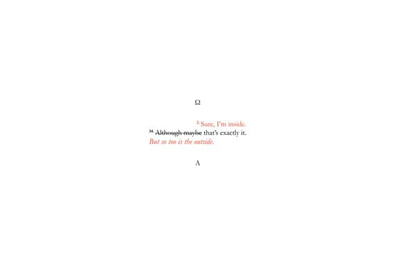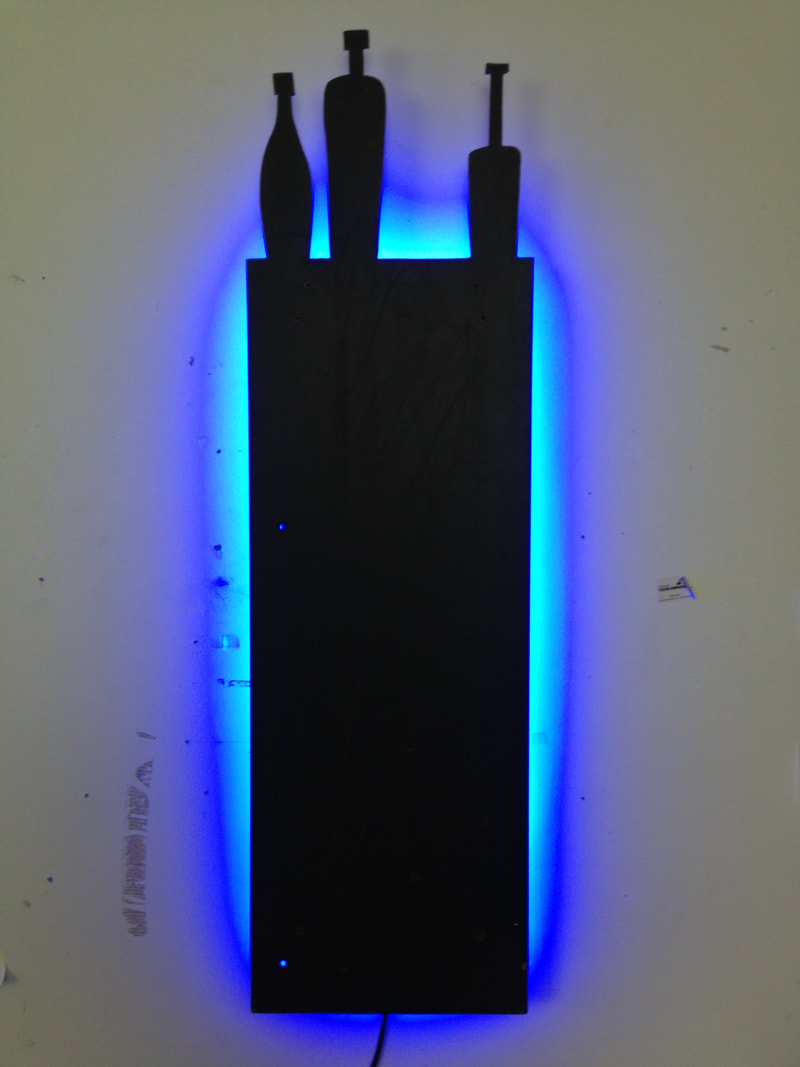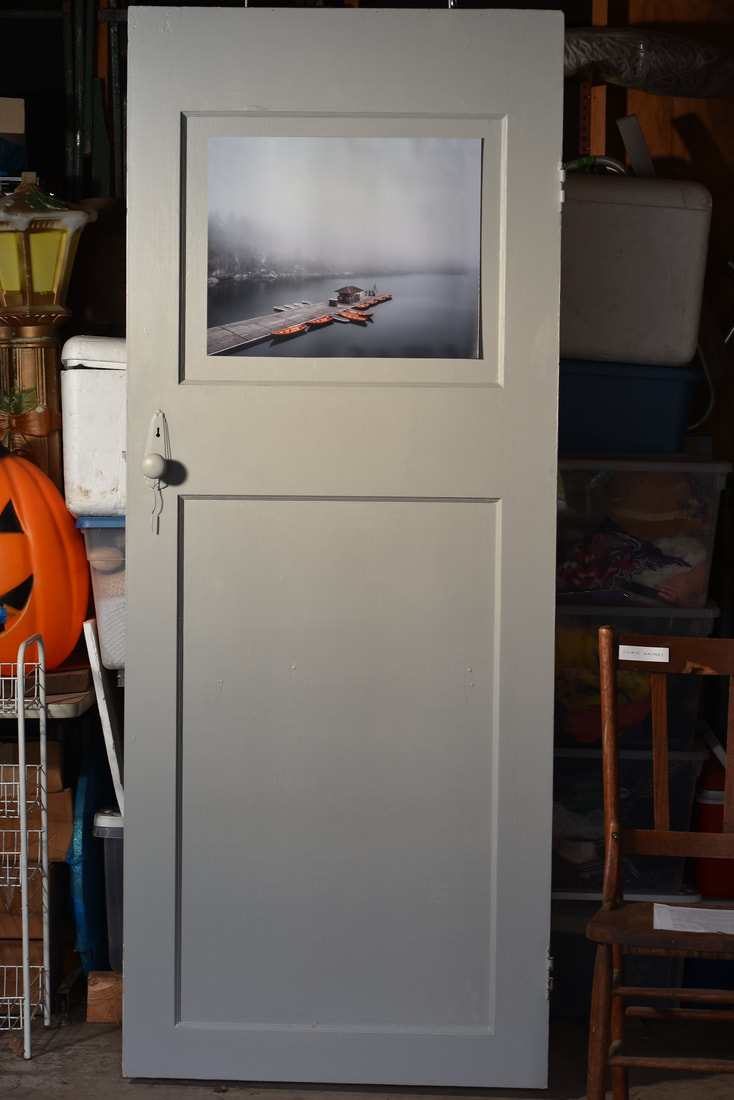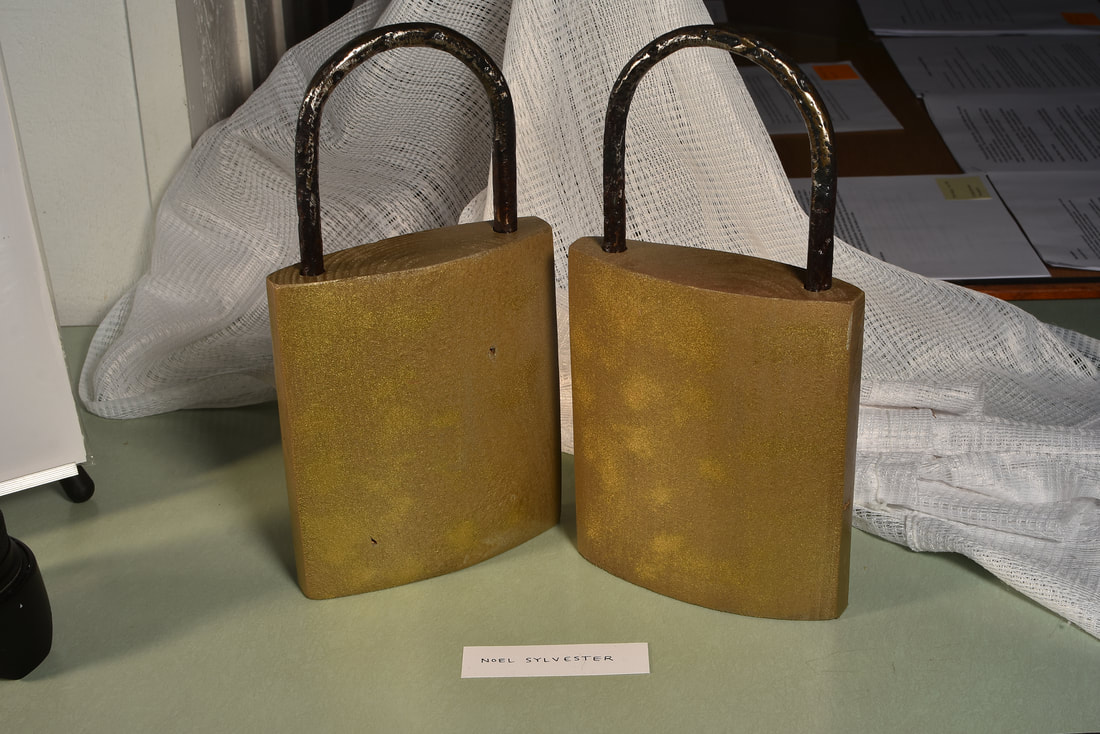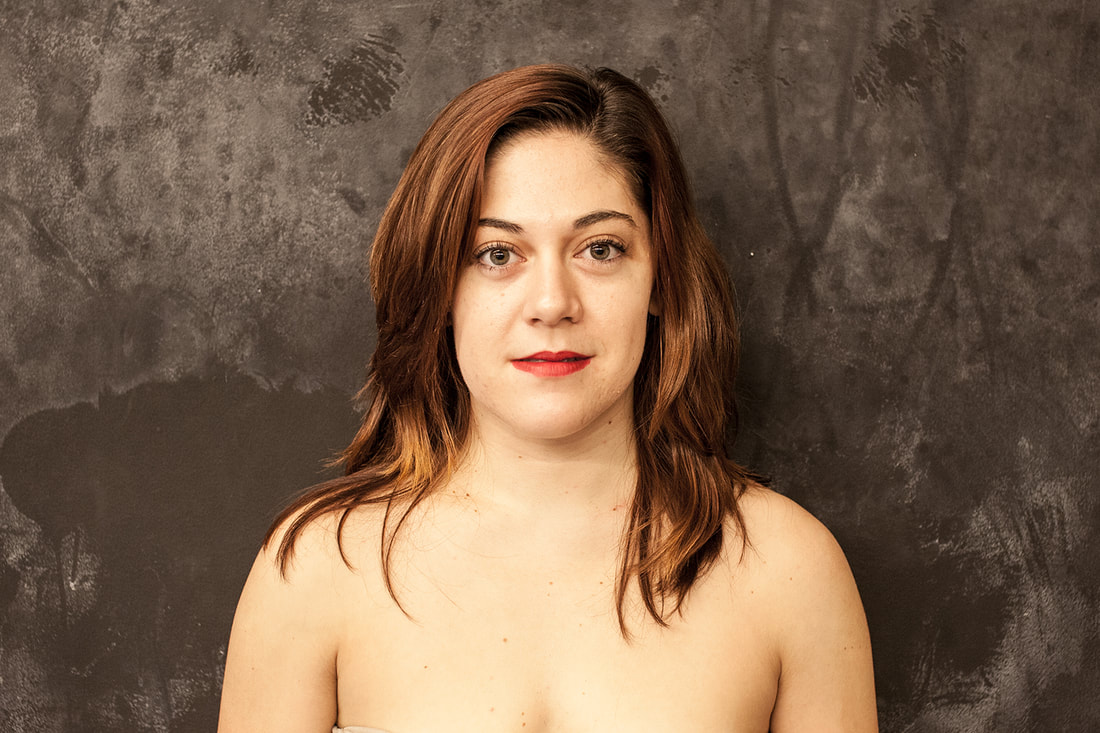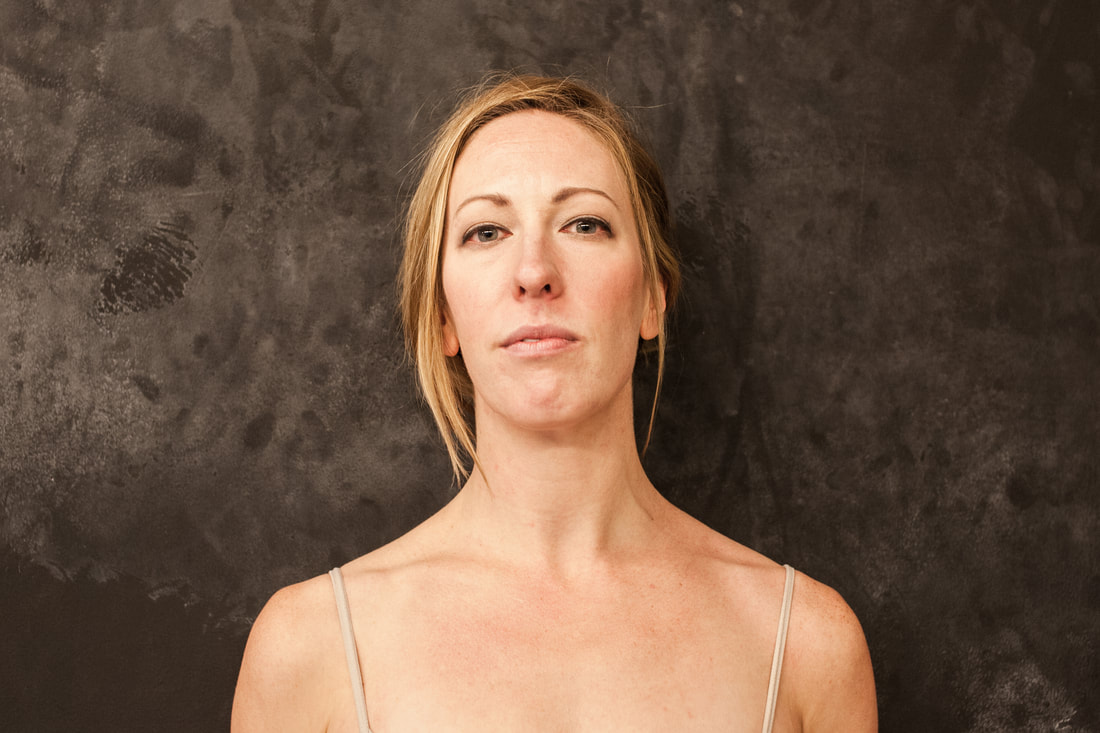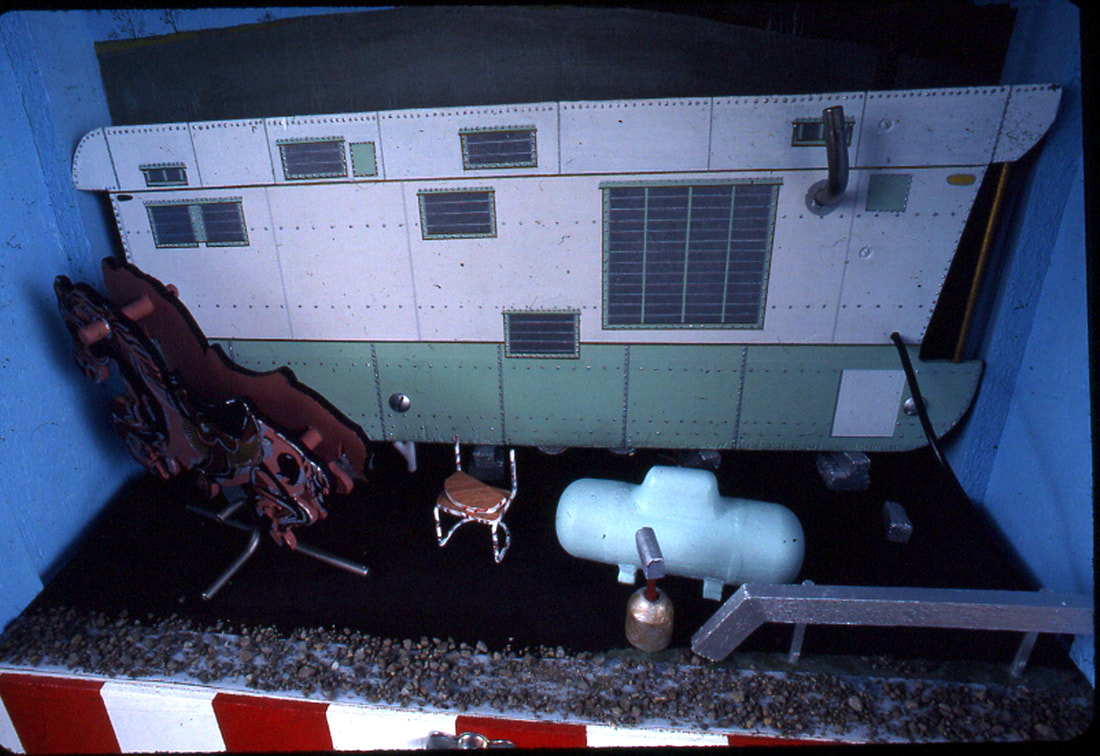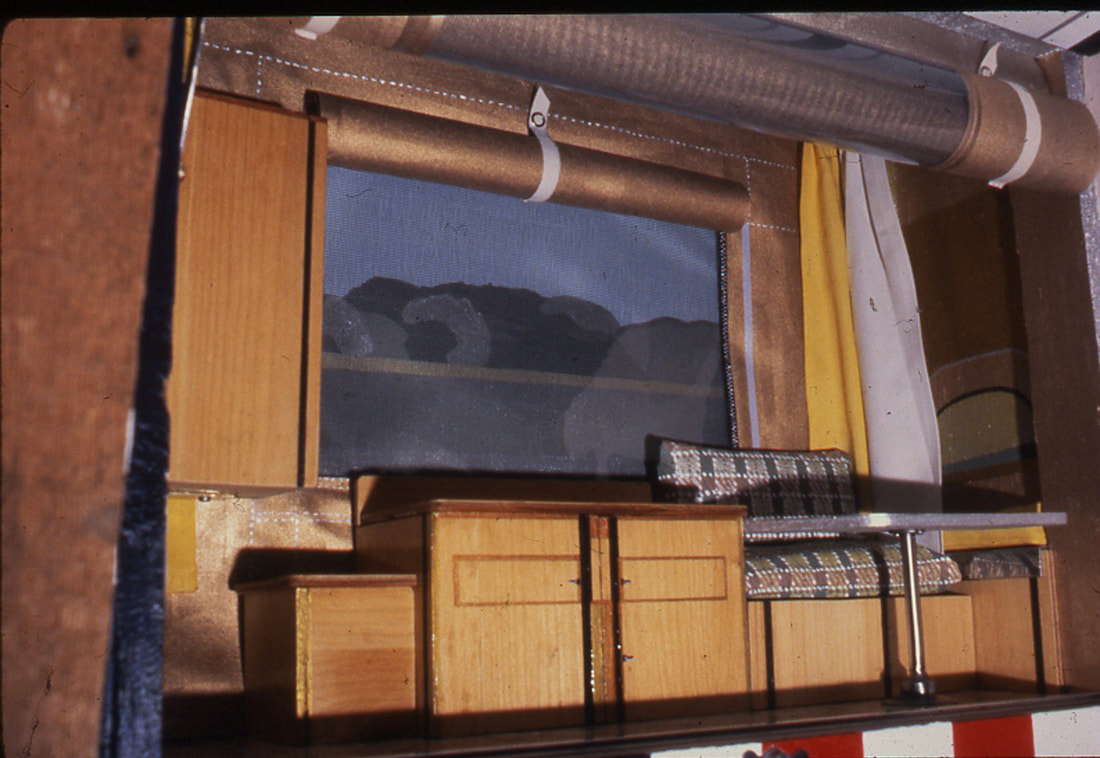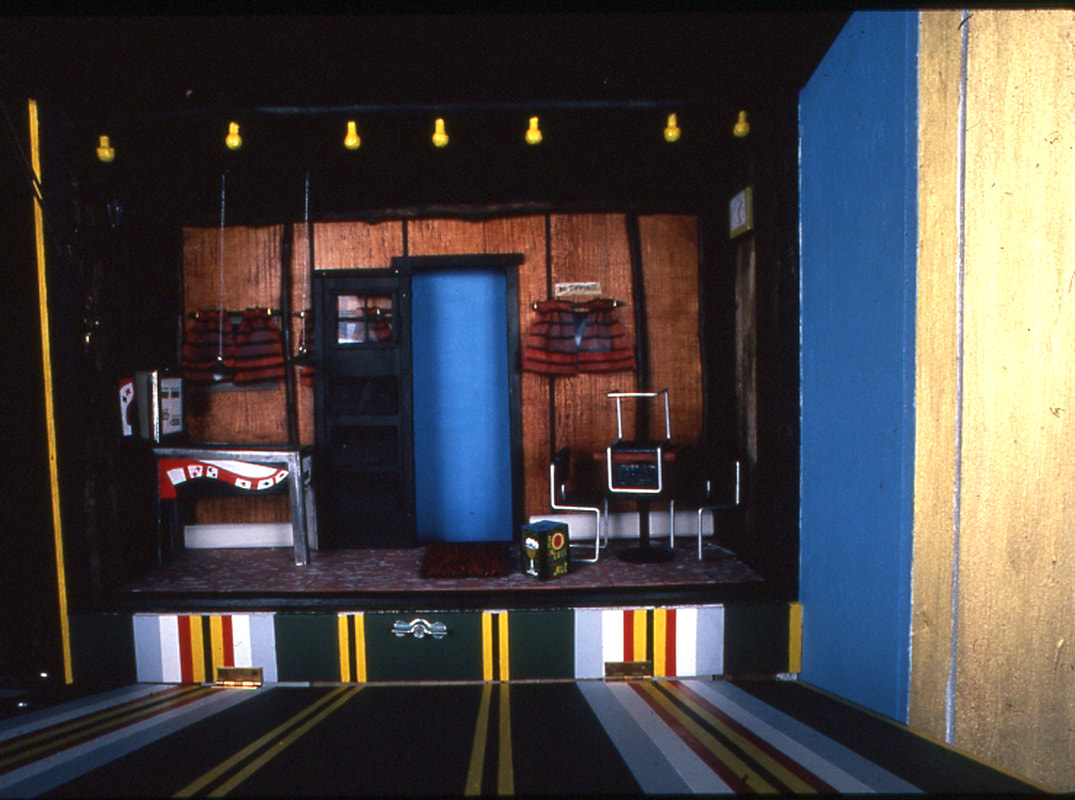|
Notes from a Safe House
by Douglas Milliken photo installation by Vivian Hua
individual photos: Chilly! Not so much as to cause discomfort, just annoyance. The neon sign is aglow, slowly purring a slight hum with it's cold cathode-tube-gas-discharge. I really wish there were chairs in here, but it's just me alone and not quite dressed wearing simply, well, matte red lipstick for whatever reason and with my back a few inches from the weathered wall behind me. The moments leading up to this are inaccessible from my memory banks, a lapse. Nothing outright scary, just adequately fuzzed over. Nonlinear time, partitioned by memory that is sorted in order of importance by some internal arbitrator of neurological hierarchy-access denied. My memory is generally pretty sharp, although year to year it seems to be less dependable. This however is an unusual, pointed lapse, 'scene deleted.' The floor has a garish mesh of stripes rolling back in a mildew-stained carpeting most likely left over from the seventies. The stage is a tavern setting, empty of actors but betraying signs of recent use. This whole setting feels important, as if I am supposed to divine meaning from it somehow, or else the performers all left already? A generic antique pinball machine, probably all flippers and bumpers and pre-multiball era perhaps, sits underappreciated in the corner, faintly whirring. Chairs have been halfheartedly turned upside down on the table and an empty liquor box is left on the floor beside them, either absentmindedly or with little passion by the bar staff. A centered door unapologetically ajar traces a rectangular void of blue outside its threshold. The houselights are on in this venue, and a droll static buzz is oscillating faintly enough to forget and then tune into and then forget again all in the same train of thought. (oh yes, the neon light) The funniest thing about this door is that you can hear the-feel the-abyss of cacophony of the outside world funneling through, and yet all that is visible is flat blue light that squint as you might doesn't seem to come into focus. There is no pit for an orchestra, no balcony. I've been here now for long enough to question just how long it actually has been, just long enough to be curious if there is a formal start or end to this experience. I don't remember entering this theater, or purchasing a ticket, or sitting in my kitchen looking in the weekly declaring out loud that this seemed a good way to spend the evening, or morning, or whatever this increment on the chronometer could be interpreted as. I'm staring disembodied at myself staring at the stripes on the wall. At the pinball machine. At the ambiguous blue bright vacuum. The seemingly arbitrary placement of the boxes that may or may not contain boozy items. I wonder out of the blue what song I would choose as the title music for the end credit sequence of my life. Not sure if I tried to leap through the door if it would be allowable, and here I seem to be paralyzed in an observational assignment, stuck in anticipation of what this all means. It could all be smoke and mirrors in any case. Flats and stagehands, etc. An outlandish speakeasy? There are times when I'm laying in bed trying to fall asleep when a laziness takes hold and I plan over and over potential different ways of shifting from one side of my body to the other, and nothing seems to be the right solution. I lay and mull the options of muscle movement over and over, cycle them as if rinsing my mouth with the thoughts until there's hardly anything left at all to spit out. My stillness in this “theater” feels similar, suspiciously dreamlike and yet so sharply coherent that it seems out of the question. The blue rectangular void starts to emit a sound close to distant birds and possibly a thin ribbon of morning commuter traffic erratically shuffling along a highway? It should be noted that the floor is painted like the stripes of a Pendleton blanket, or thick long model paint along a vintage soapbox derby race-car. My feet are cold and seem faraway looking back at me from hibernation. I'm losing my patience, and can now hear the loudening open space and faraway sirens and erratic metal grinding of garbage trucks (it isn't trash day today, is it?) Let's get on with this, really. By Morgan Hobart installation with blown glass cup (featured at event) by Dan Mirer
If I had ever thought of the challenges of middle school, the problem I faced would have never come to mind. My first period class, including me, had been informed of the school writing contest. This was a chance to show your true talent. Our quirky English teacher had told our class, hoping to resurrect our dead spirits towards the assignment. I was hooked at the idea, for writing stories is one of my great pastimes. But, for once, I felt as if I was trying to bake a cake with no ingredients. I didn’t know how to start my story. To avoid my constant habit of procrastination, I decided to take a short walk down the hallway. As I entered the long corridor, I was greeted by the brisk, glacier-like air clearing my mind. In a serene state, I stretched out my hand to the paper-white brick wall. It was as if my hand was an oar and my body was a boat, sailing through an ocean of air. Could I possibly be entering a state of enlightenment and inspiration? Nearing the end of the corridor, I felt my hand brush over something rough. The texture was drastically different from the smooth surface of the wall. The wood-like area of the wall was an indent in the hallway, making up a mere tier in an unknown cake of wall. I was surprised that I had never noticed this disembodiment while transporting myself through the corridor. Moving my hand in several full revolutions, I came to discover that the region I was touching moved slightly at its top. This must be a door, I thought to myself. The door must have a purpose, but what was it? Thoughts of childish excitement bombarded into my head like an extra neutron in an uranium atom. This nuclear fission overcame me. Could it be a pipeline of ductwork that led to every classroom in the building? Or was it a portal to another dimension with rainbows and unicorns and clouds made of fluffy cotton candy? Filled with curiosity, I got on my hands and knees, while I prepared to open the door knowing whatever lay behind it would amaze me. Checking the hallway to see if anyone was occupying the space, I decided to proceed, pass go, and collect two-hundred dollars. Well, maybe not the two-hundred dollars part, but something amazing, I hoped. I gave a gentle push on the door. The small board moved through the air like a stealth boat on dead calm water. I crawled through the small entrance, greeted by a dimly-lit room. The motion-sensor light illuminated a small portion of the room, the rest of the space was coated in inky shadows. Taking up the rest of the space were large articles. There were two chairs upside-down that were placed atop a small wooden table. On the other side of the rectangular room, a shower stall and a pinball machine lined the wall. Looking back on that day, I never truly understood how I found a storage closet so intriguing. Thinking of nothing better to do, I took down one of the chairs from the top of the table and sat in it. The cold, firm plastic sent a tickle up my spine. As my awe for the room had floated away like the graceful smoke of an extinguished candle, the thought of the story competition struck me like a snake in the grass. What was I going to do? I pondered over the issues to what felt like a great amount of time. I took a second glance at the articles in the room and several ideas came into my mind. Hmmm… I thought looking at the old, tired pinball machine. Maybe I could enter a story about a man named Ramon and how he met a girl, Stella, at an arcade or a casino, or any place that adults go to have fun. Or, peering at the shower stall, I could write about a naked lady who was murdered in her own bathtub. No, that wouldn’t work, I realized. It sounds like one of the boys in my class would say that to annoy the girls. Could I write about one of my adventures? None of these ideas seemed to work at all. Standing up from sitting at the table, I felt my chocolate wavy hair fall over my shoulders like a waterfall. Then, all of the sudden, I realized something important. Inspiration can come from you inside, not just what you see in the world. With this wisdom, I knew my story that I was going to write would be great. by Sophia McMaster Photograph & installation by Chris Walters
THE USUAL Her inky-black pupils, suspended in rings of glossy hazel, dilate as she enters the dark interior of Del’s Tavern. She’s assaulted by the pungent odor of stale beer fused with shelled peanuts, like rancid lager saturating a vat of greasy peanut butter. It’s a fragrant reminder that she’s about to break the promise she implemented over a month ago. She scans the cheerless room, hoping Ricky’s lanky frame will be hunched over a tumbler at the bar. That for once, he’ll be waiting for her. But all she sees is the perpetual assemblage of random barflies. Lit by flickering neon, they’re anchored to the same seats they always use. As if Butch, the portly and bulbous-nosed proprietor, assigned a seating chart that none of them have the courage to disrupt. Not seeing Ricky, she makes her way to the bar. A few steps in, the soles of her heels begin to shatter peanut shells strewn across the floor, a result of Del’s only source of sustenance. For a dime, Butch will dip a soiled plastic flowerpot into a mammoth bag of cut-rate peanuts and send them across the lacquered bar to those that need sodium to accompany their musty brews. After sucking out the insides, the barflies discard the shells onto the floor, creating a carcass-laden landscape of tawny husks that are crushed under the oily-bottomed work boots of Del’s clientele. She walks up to the bar, and pulls out a broken-down stool, vinyl seat held together by frayed duct-tape. She sits and crosses her legs, causing her jean cuffs to rise, which reveal her meaty ankles, one of the many despicable things she inherited from her mother. As she tugs her jean cuffs down, Butch approaches and cracks a monstrous grin, lips parting way to nicotine-stained teeth. He tells her that it’s been too long. She smiles and agrees, about to order a drink when Butch waddles away, saying he’ll get her the usual. She hasn’t wanted the usual, Butch’s sugary and watered-down take on a Boston Sour, for over a decade. But she’ll accept it, not wanting to offend him if she declines. She’ll wait for Ricky to arrive and order her something else, not giving Butch a chance to dislike her, even for a moment. As Butch prepares her drink, Wallace, one of the barflies, shuffles towards the pinball machine. He fishes around in the pockets of his threadbare coveralls, coming up with a grimy quarter. He pops it into the slot, causing the game (Card Whiz, if she remembers correctly) to quiver to life. Flaxen lights glow, illuminating Wallace’s craggy face, nose riddled with broken capillaries. His knobby fingers, stained with oil and grease, pop the buttons on the side. His hips undulating with each ding and rattle inside the machine, willing the pinball to hit combos and kickout holes to rack up points. Butch winks as he plops down her cocktail, causing a shriveled maraschino cherry to rock in the golden liquid. Off his wink, she flashes a crooked smile, tilts her head and emits an overzealous thank you. Even before the words emerge, right when her cheek muscles contract to create the off-kilter smile, a wave of self-hatred washes over her. Anger rises, causing her milky-white skin to redden at the fact that she smiles and complacently whispers words of gratitude to any flirtatious glance, wink, or nod. She knows it’s happening, can hear the small cry from the back of her mind trying to quell the instantaneous reply. The inner shriek attempting to calm her crooked smile and cheerful response but it spews forth, unchecked whenever someone of the opposite sex engages her. Like her sturdy ankles, she blames this inherited trait on her mother, another constant reminder that she holds the physical and emotional attributes of a weak woman she hasn’t seen since her and Ricky started dating. Whose hair parted to the same side as hers, who is to blame for her pale skin breaking out into red, scaly rashes, and whose lack of self-respect allowed one of many stepfathers to shower down abuse over the years. She inherited the worst from a woman she left in a crippled and tear-filled wreck, bawling into the shag carpet the color of rotten plums, when she was sixteen. Vowing to never return. To never become her. To calm down, she hoists the Boston Sour to her lips but notices the grimy fingerprints that plague the scratched tumbler. She looks at the soiled glass and wants to throw it. Hurl the cocktail she never wants, but never has the courage to refuse, at the potbellied man who made it. She fantasizes the drink sailing past him, smashing into the tarnished and greasy mirror. Causing the dollar bills taped up to the burnished surface to come crashing down, shards of glass piercing the green-inked portraits of presidents long since passed. But instead, she sips the weak and candied drink as Wallace curses at the varying chirps and whistles emitting from the pinball machine. Knowing that as soon as Ricky’s whip-thin silhouette appears in the doorframe, she’ll straighten up and smile. Relying on the knee-jerk reaction she just cursed to bring him into her arms. Not caring that the promise she made to herself was broken the moment she agreed to meet him here. Not caring that Ricky will utter excuse-riddled apologies that are disguised as requests for her to be the warm body he crawls into bed with after a double shift. Not caring because underneath the tavern’s familiar odor of ale, Jiffy, and despair, Ricky’s pleas are the same as hers – he doesn’t want to be lonely, and neither does she. by David Ebeltoft Special thanks to Vinnie for letting me film this at Volo on Market Street in Corning, NY.
She didn't know what she would find when she opened the box. Her memories of him, the old sage who passed along all of his knowledge, never seemed to own anything that would be this grand, this heavy, this full of potential and yet rife with memories of the overwhelming nature of his passing. He was not young, but also was not ready to leave this world; so many missed opportunities, stories, lessons on love and memories of her ancestors long gone. Her grandfather left her one simple thing in his will: “the contents of storage unit 55 at Al’s Cheap-Ass Storage, 1422 Rt 66, Chicago Illinois.” There she was, standing in front of the unit, which appeared to her a bit smaller than she imagined, opened to the setting sun with dust sparkling in the early spring light, and full of junk. Boxes of newspapers from 1950, Coke Cans held onto in the hope that one day they would be “antiques,” broken clocks that didn't appear to have any working components, even a few busted laptops. Then she noticed it. Sitting in the back corner, covered with a tattered sheet and fastened with the most glamorous bronze-plated locks that she had ever seen. It was huge, almost up to her chin, and appeared to have been cared for meticulously throughout his whole life. Next to it laid a note with her name written in calligraphed script. The note described his life as a travelling artist. He had a knack for voices and an incredible stage presence that once made Judy Garland spit her martini across the table. He explained his deep love for theatre and his desire to create sets out of his favorite family scenes, how he would mold the marionettes after the people he held most dear. As she opened the oversized box, she saw something magnificent. Inside was an exact replica of her favorite place on earth. His bar, where she had gone after school each day to wait for her dad to pick her up; where she had learned to love listening to his stories and those of his customers; where one time she had way too many Shirley Temples and threw up next to the regulars smoking cigarettes outside. The recreation was perfect, down to the exact detail. He had restored the drapes, a disgusting red and black that looked like they belonged as a coat on the little labridoodles from Mrs. Jensen next door. He had even perfected the first pinball game in the corner that she adored. It was spectacular. As she opened the box further, out fell two marionettes: one of an old man with grey hair and knowing eyes holding a cocktail shaker, and one of an wide-eyed young girl with blond hair and full smile. She was not sure what she would do with this miniature world full of memories and laughs, a place that was both the place where she both grew into womanhood and had her first beer and the place where she realized the true love a grandfather has for his granddaughter. She began to smile her dry smile, full of melancholy nostalgia. by Henry Powell Then, at that moment, the “Book of Dreams”, a book she found solace and comfort in, gently slipped from her lap to the floor.
She spent much of her time reading that book, since recognizing, in her teens, she had 'the gift', the gift of prescience. Before that revelation, she was regarded as a 'troubled child', who 'knew too much'. Hearing adults whispering about her caused her to retreat, to isolate herself from social contact. Some years went by. Her grandmother, who also had the 'gift', died. It was a natural course of events that she had subsequently come to live with her grandfather. 'Big Al', as he was known, quietly came into the shaded parlor. Picking up the book, he placed it on the stand next to her, along with a manila envelope-the number '55' scrawled on the front. locks & epilogue by Noel Sylvester |
66 OURS - Collaborative Writing ProjectStarting with Phase 1, writers had 66 days to base their writing on 1 anonymous person & 1 vignette, dutifully and judiciously assigned to each writer by Amelia. Photos given to the writersEach writer was given a combination of 1 person + 1 vignette from the following:
Person 1
Person 2
Person 3
Vignette 1
Vignette 2
Vignette 3
Categories
All
|
